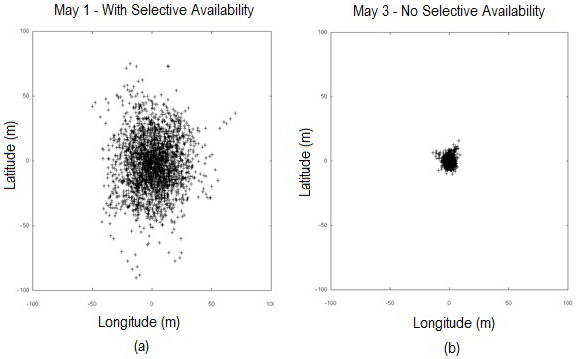It is essential that we remember the importance of common sense policies that improve the daily lives of the average individual. May 2, 2000, marks an often-overlooked political moment in American history. In a move that changed civilian access to technology worldwide, the Clinton administration chose to turn off Selective Availability (SA) on the U.S. GPS network, allowing the public access to high-accuracy GPS data for the first time. This decision, deeply rooted in political debates on national security, technology, and the growing importance of global connectivity, marked a pivotal moment for both U.S. policy and global tech innovation.
The Early Days of GPS: A Military Tool
The Global Positioning System (GPS) wasn’t always the friendly navigation assistant we know today. It began as a Cold War tool, conceived in the 1970s by the U.S. Department of Defense to give the military an edge in precision location tracking. Initially, the U.S. government wanted GPS solely as a strategic advantage for U.S. forces, allowing accurate navigation for troops, ships, and aircraft, even in challenging terrains or bad weather.
As a safeguard, the government incorporated Selective Availability (SA), a deliberate scrambling of the GPS signal to prevent unauthorized users—especially enemy forces—from gaining military-grade accuracy. While civilians could technically access GPS data, SA limited accuracy to within 100 meters. The idea was to keep this powerful resource from being used against the U.S. by foreign governments or potential enemies, while still allowing some restricted access for civilian purposes.
A Shift in Thinking: National Security vs. Civilian Access
By the 1990s, technology was accelerating rapidly, and civilians were growing interested in GPS for scientific research, logistics, and personal use. With the Cold War over, the political landscape began to shift, and the Clinton administration saw an opportunity to reconsider SA. There was growing recognition that accurate GPS could boost the economy, improve infrastructure, and enhance public safety. However, concerns lingered about national security.
The decision wasn’t easy. The Department of Defense had long regarded SA as a critical layer of national security, worried that opening up the GPS signal could make it easier for adversaries to target U.S. interests accurately. But the political pressure to support technological and economic growth was strong, with industries like aviation, agriculture, and transportation pushing for change.
President Bill Clinton and his advisers took up the debate, carefully weighing national security concerns against the public benefits of high-accuracy GPS. Clinton had previously championed internet access and tech advancement, so expanding GPS access aligned with his administration’s overall vision of technology as a tool for economic development and public good.
The Decision: A New Era for Technology Policy
After months of discussions and lobbying from various interest groups, Clinton signed an executive order in early 2000 to turn off SA, setting a target date of May 2. The White House framed the move as a way to support American industry, improve transportation safety, and encourage global leadership in technology. The U.S. also had an eye on Europe, which was planning to launch its own GPS alternative (Galileo). By making GPS more accessible, the U.S. could cement its system as the global standard.
This decision reflected Clinton’s belief in the power of technology to transform economies and improve daily life. But it was also a strategic move on the global stage: by opening GPS to the world, the U.S. positioned itself as a leader in a technology that could enhance its influence worldwide. The Department of Defense was reassured with a promise of future innovations to protect American interests, such as “anti-jamming” technology.
The Impact: Politics Meets Practicality
Once SA was turned off, the effects were immediate. High-accuracy GPS sparked an explosion in navigation technology and fueled industries from logistics to agriculture, where precise tracking and mapping became essential. For Clinton, this decision supported his political message of embracing the “Information Age.” GPS access strengthened ties between the government and private tech sectors, symbolizing a growing belief in public access to powerful technologies.
The political courage to turn off Selective Availability was about more than improving maps—it underscored a belief in public empowerment and technological leadership. By making GPS available to everyone, the U.S. led the charge for open data and accessibility, setting a precedent for future debates on technology policy, national security, and the role of government in innovation.
Sensible or Not Sensible?
Learn how our readers determine whether a post in Sensible or Not Sensible
